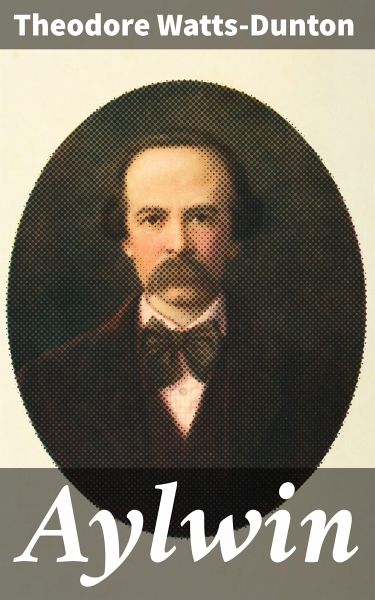
Aylwin (eBook, ePUB)
A Tale of Romantic Passion and Betrayal in 19th Century British Literature

PAYBACK Punkte
0 °P sammeln!
In "Aylwin," Theodore Watts-Dunton weaves a compelling narrative that intertwines romance, spirituality, and philosophical inquiry within the backdrop of late Victorian England. The novel's lyrical prose and richly evocative descriptions immerse readers in the tumultuous emotional landscape of its characters, particularly the enigmatic figure of Aylwin, who grapples with the burdens of love and the quest for identity amid societal expectations. The book reflects the literary context of its time, where the tension between emerging modernist ideas and traditional values became a fertile ground f...
In "Aylwin," Theodore Watts-Dunton weaves a compelling narrative that intertwines romance, spirituality, and philosophical inquiry within the backdrop of late Victorian England. The novel's lyrical prose and richly evocative descriptions immerse readers in the tumultuous emotional landscape of its characters, particularly the enigmatic figure of Aylwin, who grapples with the burdens of love and the quest for identity amid societal expectations. The book reflects the literary context of its time, where the tension between emerging modernist ideas and traditional values became a fertile ground for exploring the complexities of human experience. Theodore Watts-Dunton, a prominent figure in the literary circles of his time, was greatly influenced by his friendships with key figures such as Dante Gabriel Rossetti and Swinburne. His multifaceted career as a poet, critic, and novelist, along with his deep engagement with the aesthetic movement, culminated in "Aylwin," which serves both as a celebration of artistic passion and a critique of the moral dilemmas inherent in pursuing one's desires. Watts-Dunton'Äôs investment in themes of love and spirituality reveals the philosophical underpinnings that shaped his writing. Readers searching for a profound exploration of human emotions intertwined with exquisite prose will find "Aylwin" an indispensable addition to their literary repertoire. This novel not only invites contemplation on the dualities of love and duty but also encapsulates a pivotal moment in literary history, making it a compelling read for those who appreciate the intricate dance between art and life.
Dieser Download kann aus rechtlichen Gründen nur mit Rechnungsadresse in A, B, BG, CY, CZ, D, DK, EW, E, FIN, F, GR, H, IRL, I, LT, L, LR, M, NL, PL, P, R, S, SLO, SK ausgeliefert werden.













